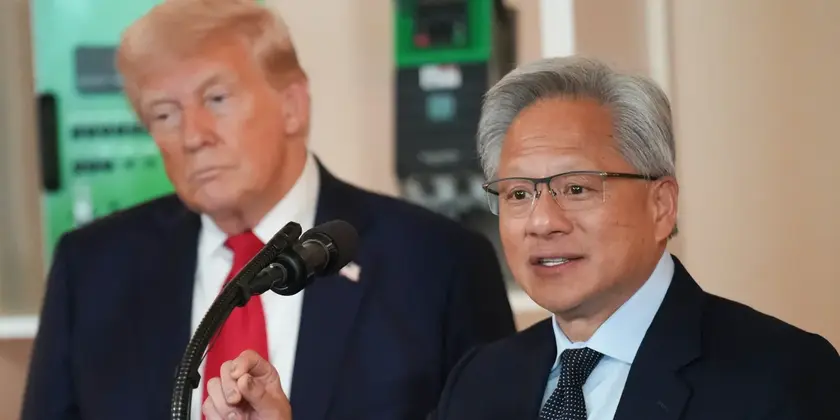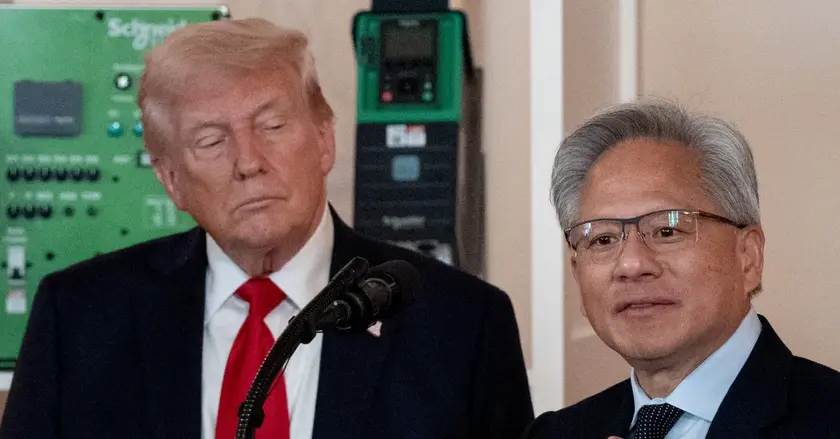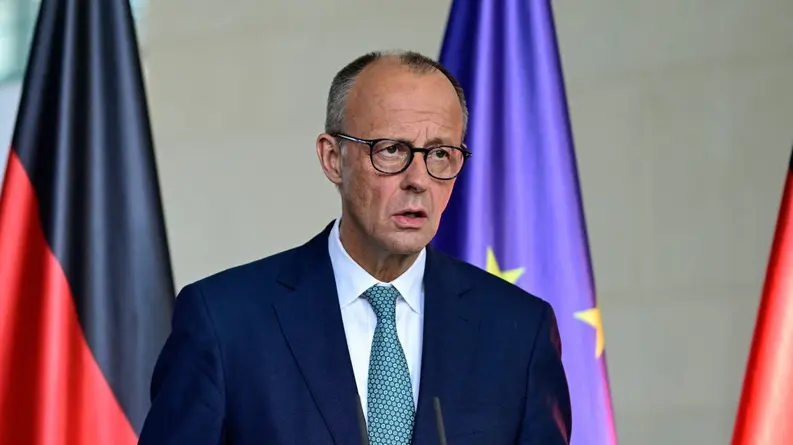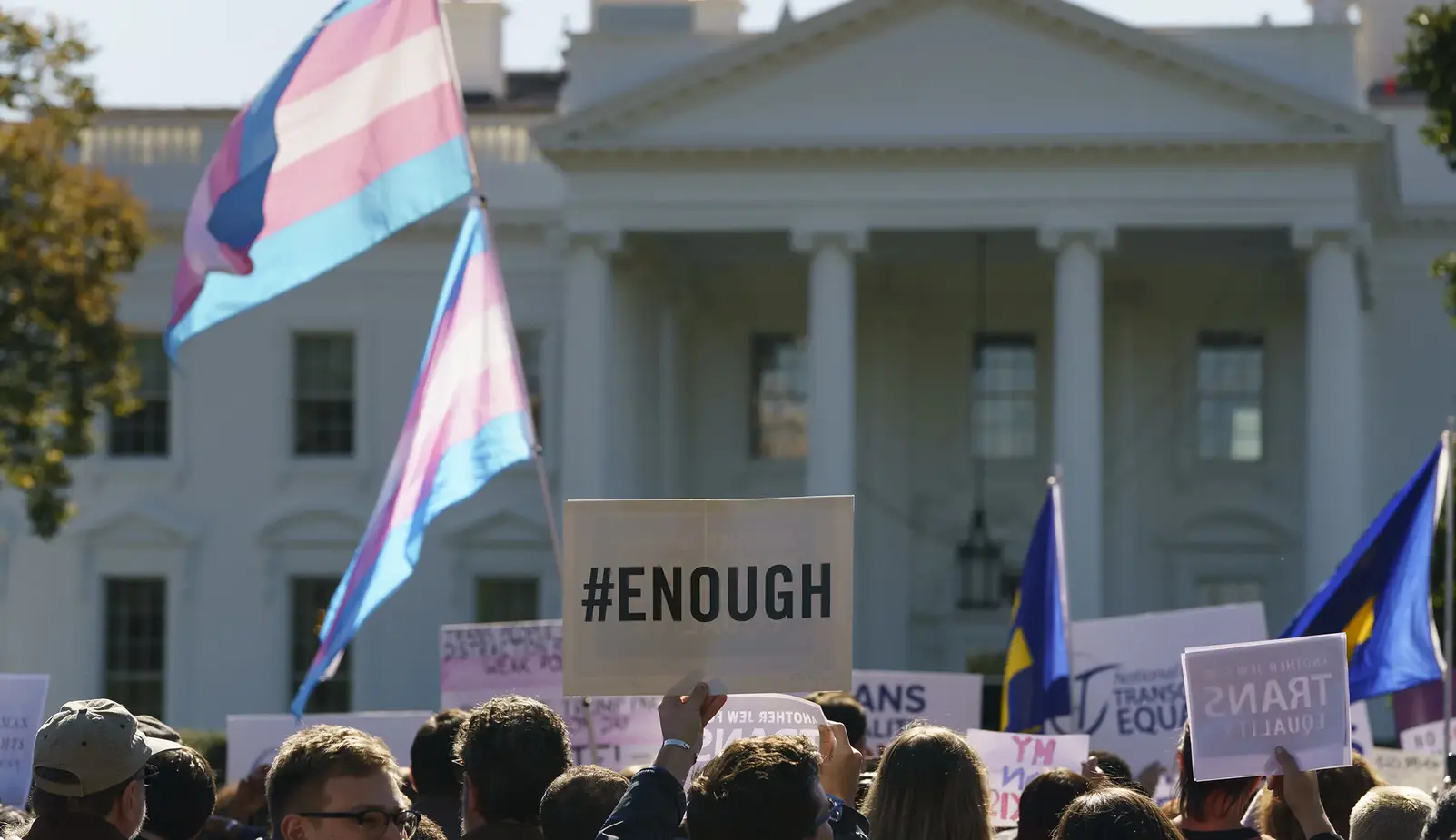T4K3.news
Export policy sparks legal debate
A 15% revenue share on Nvidia and AMD exports to China prompts constitutional questions and potential legal challenges.

The plan would require Nvidia and AMD to return a share of China chip revenue to the U.S., a move with constitutional questions.
Trump Frames Export Tax Style Deal as Bold Economic Move
President Trump described a potential agreement with Nvidia and AMD that would require a 15 percent share of export revenue in exchange for licenses to sell certain chips to China. The package centers on Nvidia's H20 AI chips and AMD's MI308, and it comes as discussions over lifting export restrictions continue. Officials say the aim is to balance national policy with keeping American chip makers in the global market, while Nvidia and AMD have not provided detailed comments on the specifics. The country’s approach not only lifts certain export bans but also raises questions about how such a revenue share would be implemented and what legal basis would justify it.
Legal scholars say the arrangement could run afoul of the export clause in the Constitution, which prohibits duties on exports. Past Supreme Court cases on export taxes, such as IBM and U.S. Shoe, are cited to doubt the legality of a targeted cholesterol-like levy. Some experts note that while the government has used subsidies and other tools, a fixed percentage of export revenue as a precondition for market access would be unprecedented. Treasury officials describe the model as unique and potentially expandable, though others warn it could invite lawsuits and international pushback.
Key Takeaways
"The export clause matters."
Erik Jensen on the constitutional question
"This is unique. Why not expand it?"
Scott Bessent on potential expansion
"It ties the fate of this chip manufacturer in a very particular way to this administration, which is quite rare."
Julia Powles on political linkage
"Viewed in that light, a 15 percent levy is less extreme than a ban."
Eric Talley on economic tradeoffs
This move tests a new boundary between national policy and corporate access. If it stands, the government would be effectively monetizing market access, a concept that could unsettle traditional trade norms and invite challenges from opponents who see it as government overreach.
If the model spreads, investors and firms may rethink where they deploy capital, fearing renegotiations of access tied to revenue. Critics argue the policy risks undermining confidence in a stable, rule-based market and could provoke international complaints or retaliation. Supporters say it could provide a template for using policy tools to align strategic priorities with domestic industry goals.
Highlights
- This feels like a beta test for a new policy
- This is unique and could be expanded to other industries
- A 15 percent levy on export revenue risks a chilling effect on investment
- If law forgets the rule book, markets will pay the price
Risk of constitutional challenge and political backlash
The move risks violating constitutional export provisions and could trigger legal challenges, investor jitters, and international pushback if treated as a new norm for market access. The policy also raises questions about accountability and the separation of powers in trade decisions.
The policy debate now hinges on whether lawmakers will defend a new, potentially risky norm in tech trade.
Enjoyed this? Let your friends know!
Related News

AI chips export policy sparks reaction

Bonnie Blue permanently banned from OnlyFans

Germany halts arms exports to Israel

Dean Cain faces backlash over ICE panel

Trump backs Nvidia deal with China

Biden's Title IX changes face legal challenges

Trump vows 1500 percent drug price cuts amid questions on feasibility

Labour peers question Palestine Action ban
